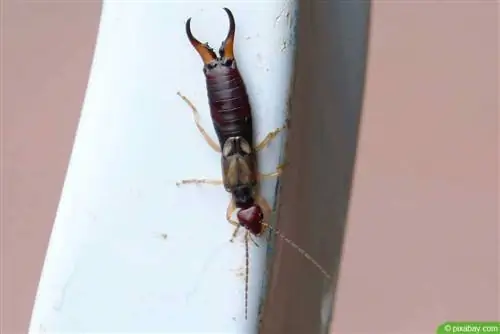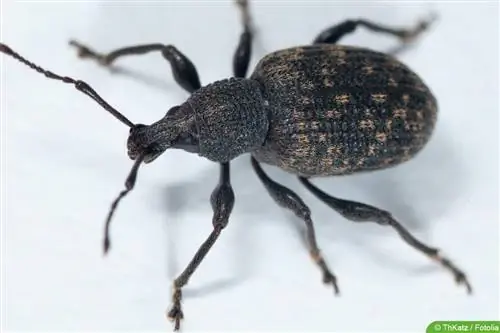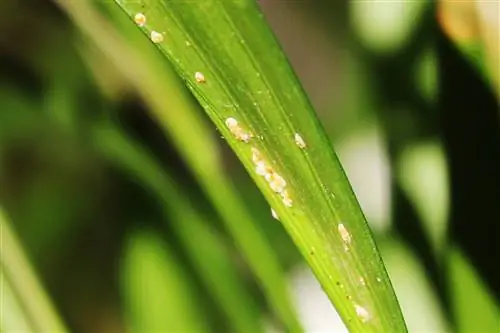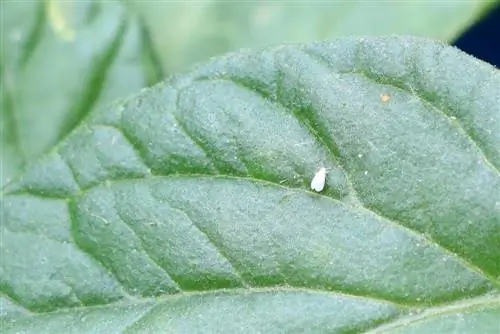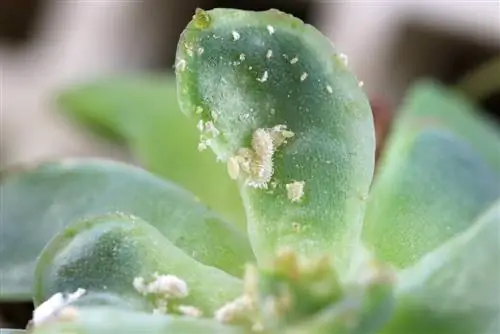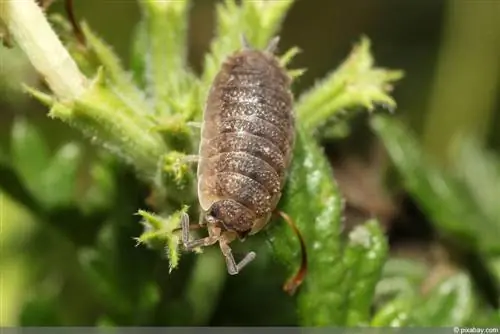- Author admin [email protected].
- Public 2023-12-17 03:39.
- Last modified 2025-01-24 12:45.
There is little to fear of a plague, as earworms rarely occur in large numbers. Usually only a few specimens find their way into the house. To get rid of them, simple measures are enough.
Preventing earworms
Earworms usually come into the house through open doors or slits. This is particularly common when there are plants infected with aphids in the immediate vicinity of the entrance or a window. Lice are one of the insects' preferred food sources. Sometimes you unknowingly bring them along with fruit, flowers or herbs from your own garden. You can prevent this by:
- Repair of damaged areas in masonry, windows and doors
- Shaking out the hanging laundry
- Checking the harvested plants from the garden
- Fighting aphids on plants near the house
By the way:
Earwigs may not be hunted or killed outdoors. They are considered beneficial insects and are under protection.
Fighting ear crawlers
If the precautionary measures don't work perfectly and ear crawlers (Dermaptera) get into the house, there's no reason to panic. The insects are neither dangerous nor do they cause any major damage. Since earwigs are very fast and agile, catching them by hand is a real nuisance. That's why you have to dig into your bag of tricks to catch them.
Claypot Trap
If individual earwigs have found their way into the apartment, you can attract them with a self-made trap. All you need is a few simple things:
- Terracotta flowerpot
- Straw, hay or wood wool
- possibly a net
Since ear crawlers like to be damp, the clay pot is briefly watered in advance and then filled with straw. The filling may need to be secured with a net to prevent it from falling out. Then place it with the opening facing downwards where the animals are hiding. So that they can crawl in, place a small piece of wood on one side. If it is light in the room, the Dermaptera hide in it and can be taken outside.
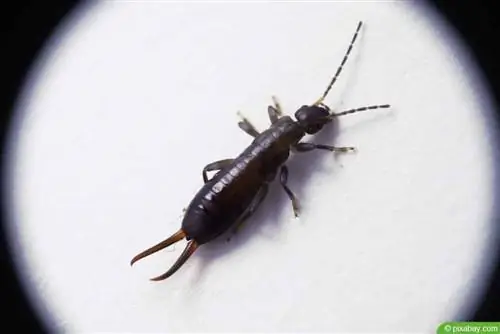
Fabric Trap
Earwiggers also like to use damp rags or cloths as shelter. Laid out in a quiet corner of the room, the animals hide there and can then be taken into the garden.
Note:
It is important that the fabric is scrunched up. Because this is the only way the light-shy insects can hide in it.
Natural remedies to expel
In practice, the success of individual home remedies against earworms varies considerably. For this reason, it is advisable to test different remedies for their effectiveness and possibly repeat them several times.
Neem products
Neem oil, also called neem oil, has a very intense smell that many insects don't like. Plants or habitats sprayed with neem solution drive the animals away from the home. Neem oil or the ground seeds of the neem tree are safe for pets and children playing. In outdoor areas, please note that rain washes off the solution and the treatment against ear crawlers must be repeated.
- Neem oil solution: 20 drops of oil, a little dishwashing liquid as an emulsifier per 1 liter of water
- spray several times a few days apart
- work ground neem seeds into the soil of the plant
Vinegar
Vinegar, especially vinegar essence, gives off an acrid smell that even earwigs don't like. A small container with a little vinegar or a rag soaked in vinegar drives the animals away from their hiding place. Vinegar can also be used as a preventive measure. If you spray window frames and door sills with it, it acts like a natural barrier that the animals cannot cross.

